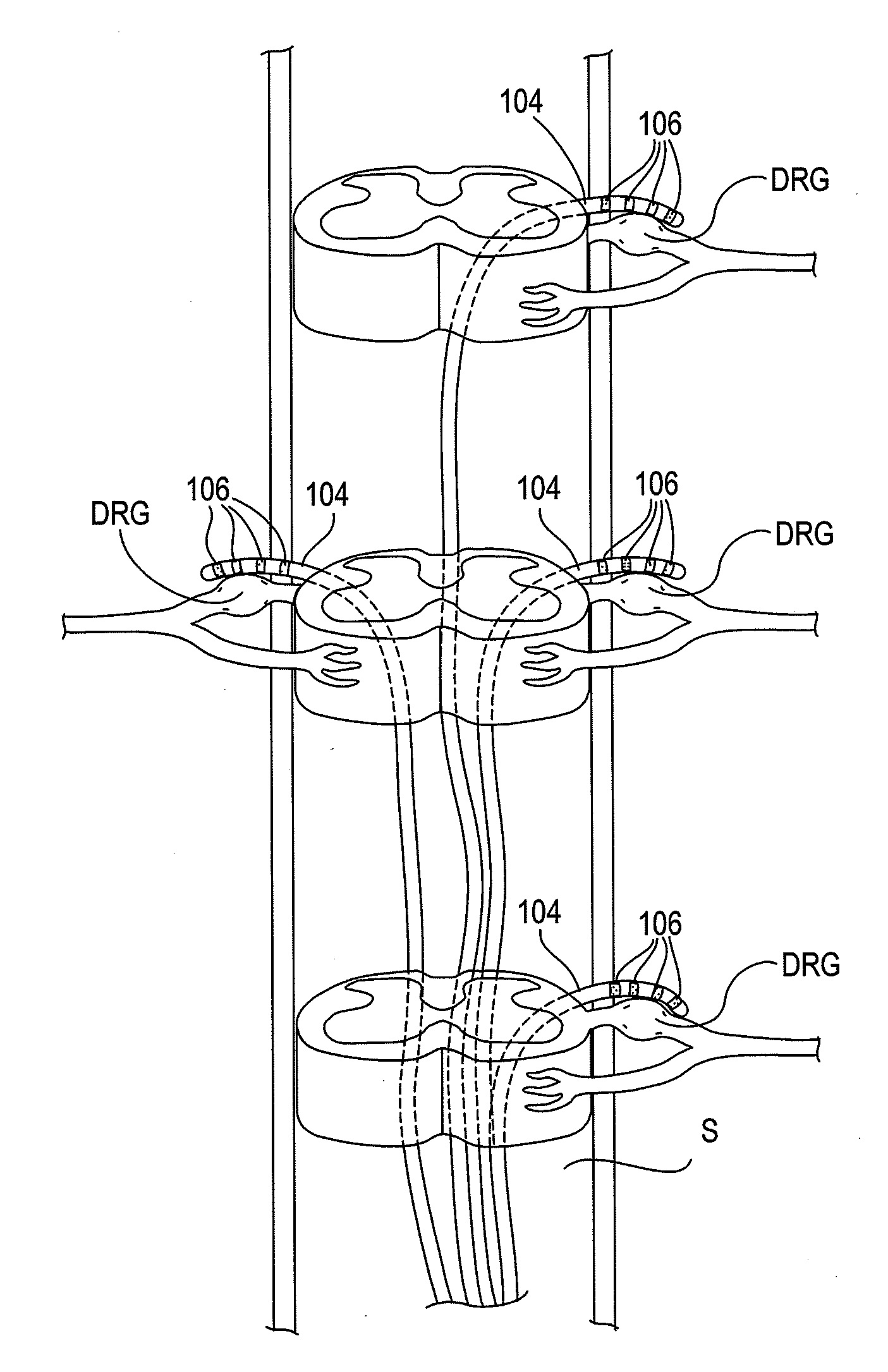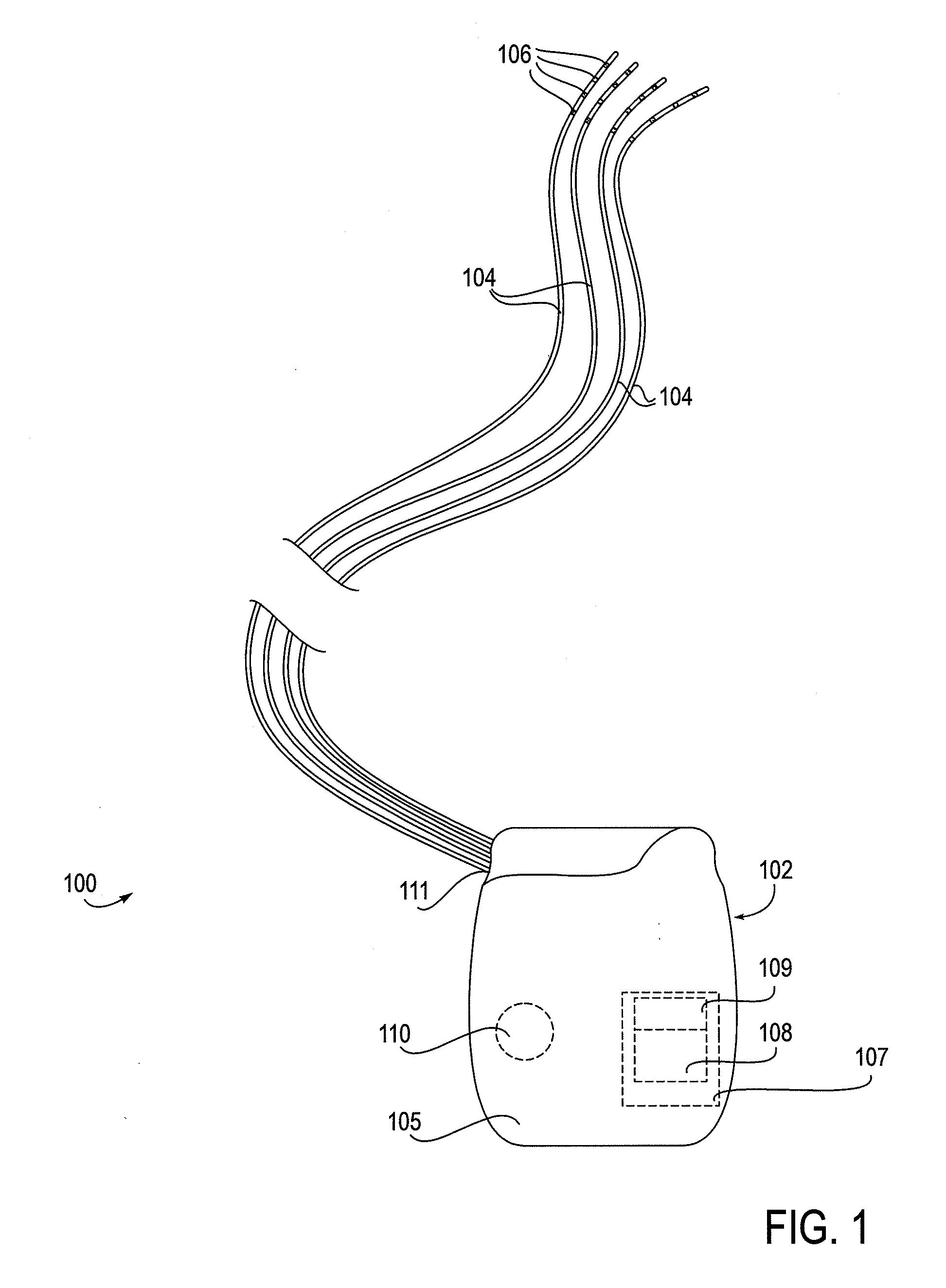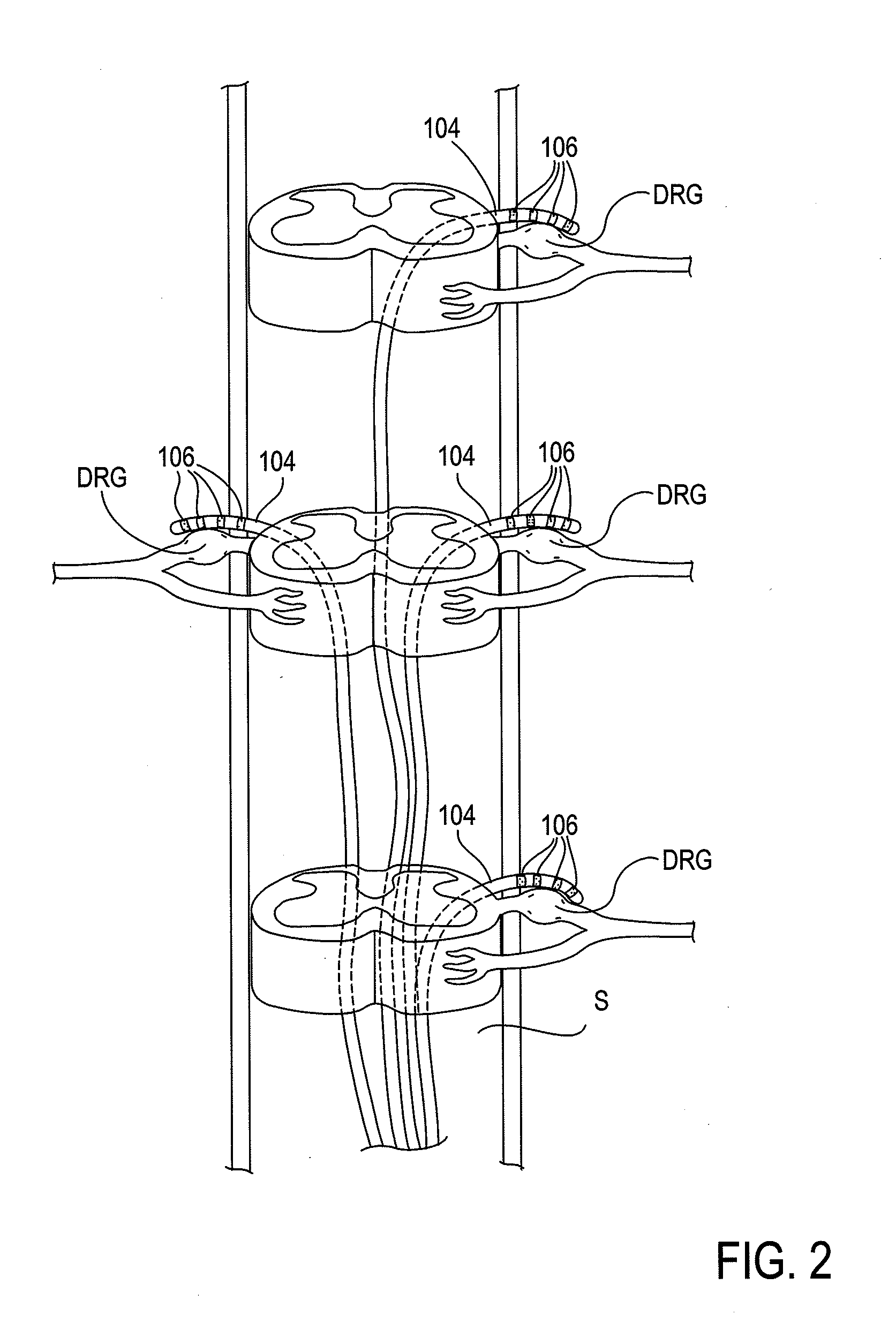Selective stimulation to modulate the sympathetic nervous system
a technology of sympathetic nervous system and selective stimulation, applied in the direction of spinal electrodes, internal electrodes, therapy, etc., can solve the problems of pain, dysfunction, social problems, and ultimately death, and reduce the effect of neuromodulation of other neurons, reducing or eliminating undesired side effects, and pain tingling or unwanted movements
- Summary
- Abstract
- Description
- Claims
- Application Information
AI Technical Summary
Benefits of technology
Problems solved by technology
Method used
Image
Examples
Embodiment Construction
[0027]The sympathetic system is responsible for mobilizing the body's responses under stressful situations, also known as the ‘flight or fight’ response. The sympathetic system acts on many different organs of the body including the eyes (contraction and dilation of the pupils), heart (increase in heart rate, blood flow, blood pressure), lungs (dilation of bronchioles), digestive system (inhibiting movement of food), kidney (increase secretion of rennin), and penis (promote ejaculation). The sympathetic system is also active at a basal level on these and many organs so as to maintain a state of homeostasis in the body.
[0028]Given the unique role of the sympathetic system in the body and the ability of the sympathetic system to affect a wide array of internal organs, the sympathetic system may be utilized to treat a variety of conditions throughout the body. Such conditions include, but are not limited to, ischemic disorders, diabetes, peripheral vascular disease, stroke, erectile dy...
PUM
 Login to View More
Login to View More Abstract
Description
Claims
Application Information
 Login to View More
Login to View More - R&D
- Intellectual Property
- Life Sciences
- Materials
- Tech Scout
- Unparalleled Data Quality
- Higher Quality Content
- 60% Fewer Hallucinations
Browse by: Latest US Patents, China's latest patents, Technical Efficacy Thesaurus, Application Domain, Technology Topic, Popular Technical Reports.
© 2025 PatSnap. All rights reserved.Legal|Privacy policy|Modern Slavery Act Transparency Statement|Sitemap|About US| Contact US: help@patsnap.com



